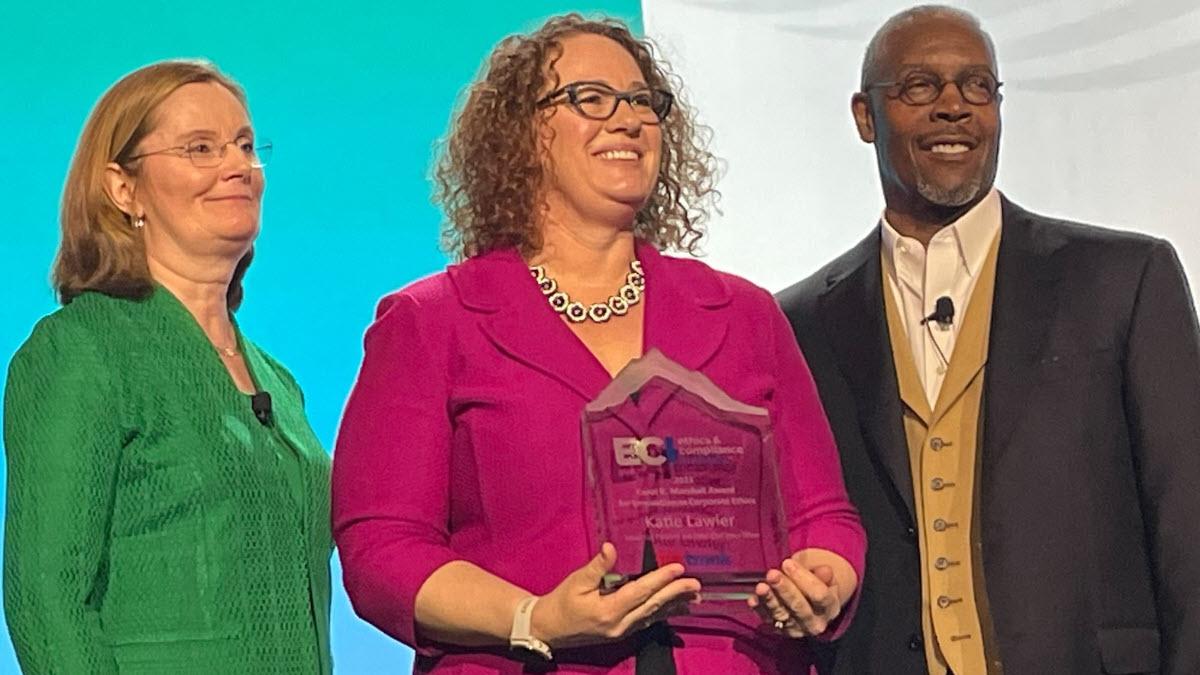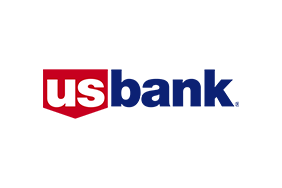Bringing Innovation to the Age-Old Topic of Ethics
The global chief ethics officer talks about how U.S. Bank is leading the way
Published 05-26-23
Submitted by U.S. Bank

Originally published on U.S. Bank company blog
When you think of ethics, a concept as old as time, you may not think of innovation. But as Katie Lawler, senior vice president and global chief ethics officer at U.S. Bank, will tell you, evolving how we think about ethics is innovative itself.
Lawler, who was recently recognized by Ethics & Compliance Initiative with its Carol R. Marshall Award for Innovation in Corporate Ethics, shared how she and her team are bringing innovative thinking to the bank and its 77,000 employees when it comes to doing the right thing.
What does it mean to be innovative in a topic that is centuries old? Why is it important?
I think it’s going beyond your code of ethics, your employee ethics hotline and annual ethics course. It starts with looking at ethics as more than a set of rules.
It’s about recognizing that much of our behavior is driven by the work environment we are in and being intentional about shaping a culture that supports good decision making.
When we created the Global Ethics Office, we started to look to organizational and behavioral psychology to understand how we might influence the environment for the better. We are learning from and partnering with the bank’s behavioral scientists to understand what drives human behavior so we can be responsive to it.
Can you give some examples of how you’re innovating ethics at U.S. Bank?
By incorporating psychological safety and behavioral science in how we think about ethics, we are focusing on creating the conditions for employees to be able to be at their best.
We're working closely with our in-house behavioral scientists. We want people in this company to tell us when there’s an issue, an opportunity, a mistake, a new way of doing things. So we started with behavior mapping – asking ourselves, “What does it take for someone to come forward and speak up?” Then, what are the barriers and obstacles, or where it could break down? What are some interventions we could test to address those barriers? How do we make the process of coming forward less intimidating, and how do we build positive reinforcement for doing so?
In every language in the world, the word people use for whistleblower is negative. You think about rat, fink, narc, etc. So how do we flip that and give positive reinforcement for stepping forward? We know it can be as simple as saying "thank you" the minute someone speaks up.
Telling the stories of how people spoke up and the positive impact it makes is important. So that's one of the projects we're working on with that team.
We’re also exploring the design of our tools for reporting ethics concerns so that it is less intimidating and helps people feel better and more comfortable with speaking up.
Why is psychological safety in the workplace important? Are we seeing benefits?
We had been talking about it for a while, but psychological safety really caught on for our teams during the pandemic. In a psychologically safe workplace, people feel they can be themselves, offer ideas, raise concerns, admit mistakes and offer new ideas. They aren’t afraid of looking foolish, being viewed as negative, or being seen as difficult.
Psychological safety helps create the culture of inclusion and belonging we're striving for, where every employee feels that their voice is welcome and wanted.
Psychological safety also enables innovation. We know from research that your most innovative teams are those that are psychologically safe because people don’t hold back their ideas out of fear. This concept is the soil for integrity, inclusion and innovation.
Companies won't thrive if people are keeping their heads down trying not to make any waves.
As a company, we're going through big changes with technology, evolving to meet changing customer needs. How do ethics and your role connect to our technology transformation?
I’m part of our internal working group for responsible use of artificial intelligence and machine learning. The work has accelerated in the last 18 months working with our Digital, Risk, Technology, Operations and Innovation teams.
We’re working on how we operationalize our principles and values for this transformation, to leverage new technologies in a responsible way.
Our principles focus on fairness, transparency, explainability and avoiding harm.
But we also have one that is about doing good. How can we use technology to better support the needs of our customers and actively do good? I think it is really important to think beyond doing no harm. If you only focus on avoiding harm, there is a risk that you do the minimum.
When you think about doing good, creating benefit for stakeholders, that is where you get to the real power from operating with ethics, whether about AI or any other aspect of your operation.
You were recognized with a personal award this year, and U.S. Bank was also named one of the World's Most Ethical Companies for the ninth consecutive year. What do you think drives this ongoing recognition?
I think it comes back to the core culture at U.S. Bank. We're disciplined. We're thoughtful. As an organization, we have prided ourselves on being very customer focused.
Look at our core values. Some companies’ values are just words on paper, but our core values truly reflect who we are and who we strive to be.
We're always trying to anticipate both on risk and the opportunity side what we need to be focused on to best serve customers and employees.
I really think there’s something special in this company from the top down. We're here to serve the customer and help them make their dreams come true, and we do that by doing the right thing every day.

U.S. Bank
U.S. Bank
About U.S. Bank
U.S. Bancorp, with approximately 70,000 employees and $601 billion in assets as of September 30, 2022, is the parent company of U.S. Bank National Association. The Minneapolis-based company serves millions of customers locally, nationally and globally through a diversified mix of businesses: Consumer and Business Banking; Payment Services; Corporate & Commercial Banking; and Wealth Management and Investment Services. The company has been recognized for its approach to digital innovation, social responsibility, and customer service, including being named one of the 2022 World’s Most Ethical Companies and Fortune’s most admired superregional bank. Learn more at usbank.com/about.
More from U.S. Bank

